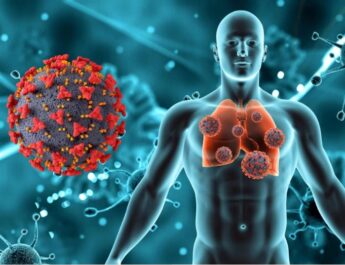Question: Like Rahul Gandhi, there are many other people who do not feel cold. Why so? Is there any science behind this?
Answer: There are 8 main reasons for this…
It becomes a habit to tolerate cold: People who live in very cold places, their body adjusts itself accordingly. Think of it like this, a person living in Delhi feels cold at a temperature of 2 degree Celsius. If that person comes to Bhopal, he will not feel cold here in 10 degrees. Similarly, a person living in Bhopal will feel very cold in 10 degrees and it is possible that he will be seen wearing a sweater, coat and cap. Many people do not feel cold because of their habits. For example, some people do not fall ill even in winters despite taking a bath with cold water in the morning. But those who bathe in hot water suddenly one day take a bath in cold water, they will become ill.
Physical Activity: Metabolism is good for those who do physical activity daily. That’s why such people do not feel cold much. For example, Rahul Gandhi walks several kilometers daily in Bharat Jodo Yatra. Due to this regular exercise, it is possible that his physical fitness has become good. That’s why it doesn’t feel cold. This happens with many sportspersons as well.
If the height is low then the cold will be less: According to Jacques Le Blanc, researcher at Laval University of Beck, whether or not we feel cold is directly related to our physical structure. The muscles of short people release less heat in the environment. At the same time, more heat is released in the environment than the muscles of tall people. Because of this people of short stature feel less cold.
Body fat determines how cold we feel: Our body fat also protects us from the cold. Body fat present under the skin acts as an insulator. Due to this, the heat of the body does not come out.
A study published in the American Journal of Human Genetics has also told about this mystery. It said that people who have less protein called alpha-actinic 3 in their muscle fibers, those people have better cold tolerance than others.
Nerve Damage: Our nervous system plays an important role in feeling cold or hot. In such a situation, if there is any damage to the nerve pathway, that is, the path of the nerves through which the signal goes to the brain, or if there is an injury in the brain or if there is a brain stroke, then cold or heat is not felt.
Congenital insensitivity: This condition is present from birth. This is a very rare condition. In this, the patient does not feel pain even after getting injured. Also, in some conditions, the feeling of cold and heat is not even felt.
Hyperthyroidism: When thyroid hormones are released in excess, this condition is called hyperthyroidism. This increases the metabolism of the body. Due to which the heat is more and there is no feeling of cold.
Question: Can any kind of food reduce the feeling of cold?
Answer: Yes absolutely. In winter, such things which are not easily digested, keep our body warm. Foods rich in healthy fats, carbohydrates and proteins protect us from cold.
Root vegetables: Root vegetables like radish, turnip and sweet potato are not easily digested. That’s why they work to keep us warm in winter.
Complex Carbohydrates: Carbohydrates are found in complex form in oats, whole grains and potatoes.
Eggs and Bananas: Vitamin B and magnesium present in bananas help our thyroid and adrenal glands to function properly. These glands regulate our body temperature. On the other hand, eggs rich in protein and vitamins have a lot of energy. These help our body fight infections in winter.
Caffeine and Spices: Our body’s metabolism is accelerated by caffeine and spices. This helps in increasing our body temperature.
Iron Rich Foods: Iron deficiency also makes many people feel more cold. Therefore, to avoid cold, eat things like red meat and spinach.
Healthy Fats: Healthy fats are found in abundance in desi ghee, dry fruits and nuts, which work to protect against cold.
Water: People drink very little water in winter. Due to this, the blood becomes thinner and cold starts more. That’s why drinking water is very important. If you are not able to drink water directly, then you can drink it after boiling it by adding ginger, basil, cinnamon. Apart from this, you can drink many types of healthy tea.
Similarly, by doing meditation, you can feel less cold.
You can meditate on the temperature of the breath coming out of your body and coming inside the body by sitting straight or lying down. Breathe deeply and concentrate around the nose, mouth and throat.
Sit comfortably and drink hot tea with full attention. People have been doing this type of meditation in Japan for a long time. It is called chanoyu in Japanese.
Question: What is the effect of cold on our body?
Answer: Due to cold, our body reacts like this, that is, it reacts…
The color turns yellow: There are thermoreceptors all over the skin of our body. Thermoreceptors are cells of the nervous system that detect changes in temperature. In winter, these thermoreceptors send signals to our brain. When it starts to get cold, the brain sends signals to the blood vessels. The blood vessels constrict and the flow of blood decreases. This reduces heat loss and maintains body heat. Due to less blood flow, the color of the body turns yellow.
Shivering: When we shiver, many muscles of the body are used. This produces heat in the tissues of the body.
Goose bumps: The muscles under the tiny hairs on the body contract in winter and the hairs there stand up. These are called goosebumps. Hair forms an insulating layer on our skin so that the heat of the body does not escape. However, due to the mutation on the human body, now the hair has reduced, due to which we also need to wear warm clothes.
Hormones are released: Our body increases metabolic rate to keep warm in winter. For this, many types of hormones and proteins are released.
Question: Why do some people feel more cold? Could this be a problem?
Answer: The condition of being exposed to extreme cold is called cold intolerance. Mostly this happens to people who are suffering from some chronic disease or who have less fat on their body.
Question: Why do people get sick in cold?
Answer: There are mainly 3 reasons for this…
- Some people feel ill when it is cold. The reason for this is psychological.
- Viruses reproduce quickly and easily in low temperature and dry environment. These viruses and germs make us sick in winter.
- Cold winds have a direct effect on our respiratory system. Throughout the year, a layer of mucus remains in the respiratory system, which protects us from germs. But in winter this layer of mucus becomes weak. This increases the chances of getting sick.
Question: Why do we shiver when we get cold?
Answer: Shivering occurs when it is very cold. Actually, when the body realizes that more temperature is needed, the brain sends a shivering signal to our muscles. Due to this, the temperature of the body and the surrounding gets regulated and the feeling of cold starts reducing.
Shivering causes exercise of the muscles which generate heat. This makes the cold feel less.
Why do we get chills when we see someone shivering?
According to a research by UK’s University of Sussex, just seeing someone chilling or shivering can cause chills. In this research done at the Medical School of Brighton and Sussex, volunteers were shown videos of people immersing their hands in cold water. After this it was observed that the body temperature of the volunteers decreased.



